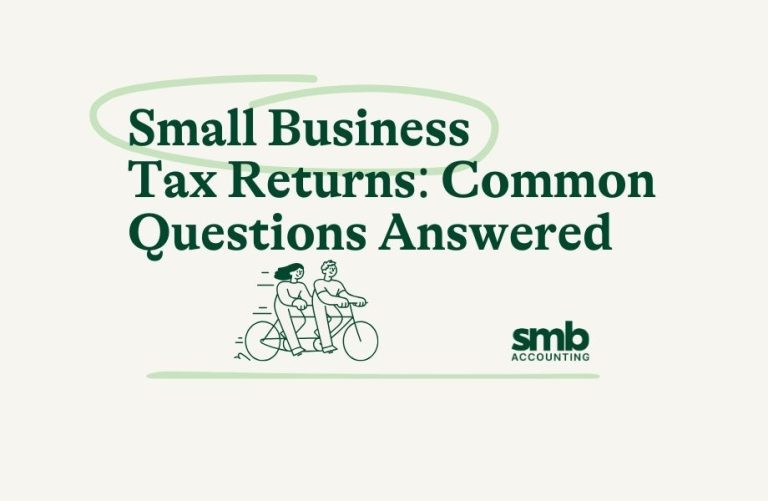Running a small business in Australia comes with many responsibilities, and handling taxes is one of the most important. Even though taxes may seem complicated, knowing some basic tips can make the process a lot simpler. As a small business owner, understanding your tax obligations and staying organised can save you both time and money.
Navigating through tax requirements can be less stressful when you know which deductions you can claim and how to keep accurate records. Simple strategies can prevent last-minute scrambles and reduce the risk of mistakes. Whether it’s claiming the right deductions or using the right tools to track your finances, each step can make tax time smoother.
In this article, we’ll cover essential tax tips every Aussie small business should know. From understanding your tax duties to using technology like Xero for simpler management, these tips are designed to help you stay compliant and efficient. Let’s dive into these practical tips that can take the hassle out of managing your business taxes.
Understand Your Tax Obligations
As an Aussie small business owner, knowing your tax obligations is essential. The first step is understanding the different types of taxes you need to manage. These usually include Goods and Services Tax (GST), Pay As You Go (PAYG) withholding, and Payroll Tax if you have employees.
GST is a 10% tax on most goods and services sold in Australia. If your business has an annual turnover of $75,000 or more, you must register for GST. You will need to collect this tax on your sales and also pay GST on your purchases. Lodging your Business Activity Statement (BAS) every quarter or annually helps you report and pay your GST. It’s crucial to keep track of all these transactions to ensure you meet your obligations.
PAYG withholding is another important tax, which requires you to withhold a portion of payments made to employees and contractors. This ensures that they can meet their own tax obligations. Make sure to regularly remit these withholdings to the Australian Taxation Office (ATO).
Payroll Tax, while only applicable in certain states and territories, is also significant if your wages exceed the threshold. Each state and territory has its own tax rates and thresholds, so check the regulations where your business operates. By staying on top of these tax obligations, you avoid fines and ensure your business remains compliant.
Essential Deductions Every Business Should Claim
Knowing which deductions you can claim helps reduce your taxable income, saving your business money. Here are some key deductions every small business should consider:
1. Operating Expenses:
– Everyday costs needed to run your business, such as office supplies, rent, and utilities, are deductible. These are essential expenses and should be tracked and recorded comprehensively.
2. Employee Wages and Superannuation:
– The wages you pay your staff, along with superannuation contributions, can be claimed as deductions. This helps reduce your taxable income while complying with employment laws.
3. Business Equipment and Depreciation:
– Purchase costs for business equipment like computers, furniture, and machinery can be claimed. Additionally, depreciation on long-term assets is another claimable expense.
4. Marketing and Advertising Costs:
– Expenses related to promoting your business, including online advertising, print, and promotions, are deductible. These costs can help you grow your business while offering tax relief.
5. Professional Services:
– Fees paid for professional services such as accounting, legal advice, and IT support can also be deducted. These services are crucial for smooth business operations and compliance.
6. Travel and Car Expenses:
– If you travel for business, you can claim expenses for accommodation, meals, and transport. For car expenses, you can use cents per kilometre or logbook methods to calculate deductions.
7. Home Office Expenses:
– If you run your business from home, part of your home office expenses can be claimed. This includes a portion of rent or mortgage interest, utilities, and internet costs.
By understanding and claiming these deductions, you can optimise your tax situation and ensure you’re not paying more than necessary. Keep accurate records and receipts for all deductible expenses to make the process smoother and stress-free.
Tips for Keeping Accurate Financial Records
Keeping accurate financial records is crucial for the success of your business. It helps you stay compliant with tax laws and provides a clear picture of your financial health. Here are some tips to ensure your records are always in top shape:
1. Use Accounting Software:
– Implementing reliable accounting software like Xero can help automate many record-keeping tasks. It allows you to track income, expenses, and generate reports easily.
2. Maintain a Consistent Schedule:
– Set aside regular times each week or month to update your financial records. This habit ensures you never fall behind and keeps your data current and accurate.
3. Separate Business and Personal Finances:
– Always keep your business and personal finances separate. Use a dedicated business bank account and credit card for business transactions. This separation simplifies your record-keeping process and makes it easier to track business expenses.
4. Save & Organise Receipts:
– Keep all receipts for business-related purchases. Use digital tools to scan and organise these receipts to prevent loss and make them easy to retrieve when needed.
5. Reconcile Bank Statements Periodically:
– Regularly reconcile your bank statements with your accounting records. This practice helps catch discrepancies early and ensures the accuracy of your financial data.
6. Consult with a Professional:
– Engage with an accountant or bookkeeper to review your records periodically. They can provide valuable insights and help you stay on track.
By following these tips, you can maintain accurate financial records that will support your business’s growth and compliance with tax laws.
How Technology Like Xero Can Simplify Tax Time
Technology has transformed how businesses handle their finances, and tools like Xero are at the forefront of this change. Using Xero can greatly simplify tax time for your small business. Here’s how:
1. Automated Bank Feeds:
– Xero allows you to connect your bank accounts directly, automatically importing and categorising transactions. This automation reduces the manual work and ensures your records are always up-to-date.
2. Real-Time Financial Data:
– With Xero, you get real-time insights into your financial status. Accessing up-to-date reports and data helps you make informed decisions and prevents last-minute surprises during tax time.
3. Easy Invoicing and Payment Tracking:
– Create and send invoices directly through Xero. You can track payments and set up reminders for unpaid invoices, streamlining your accounts receivable process.
4. Expense Management:
– Record and manage expenses easily with Xero’s mobile app. Capture receipts and enter expense details on the go, keeping everything organised and ready for tax filing.
5. Integrations with Tax Tools:
– Xero integrates with several tax tools and applications, allowing for seamless data transfer. This integration ensures your tax returns are accurate and reduces the risk of errors.
6. Collaborative Features:
– Xero allows multiple users to access the account. This feature makes it easy for your accountant or bookkeeper to review your records, prepare your BAS, and ensure everything is in order.
Leveraging Xero not only simplifies the day-to-day management of your finances but makes tax time much less stressful.
Conclusion
Managing small business taxes doesn’t have to be overwhelming. By understanding your tax obligations, knowing which deductions to claim, keeping accurate financial records, and leveraging technology like Xero, you can simplify the process and avoid headaches. Staying proactive and organised will help ensure your business remains compliant and financially healthy.
If you need expert help with your business taxes, SMB Accounting can provide the support you need. Our team specialises in individual tax returns, small business accounting, and more. Contact our tax consultants today to make your tax time a breeze.




